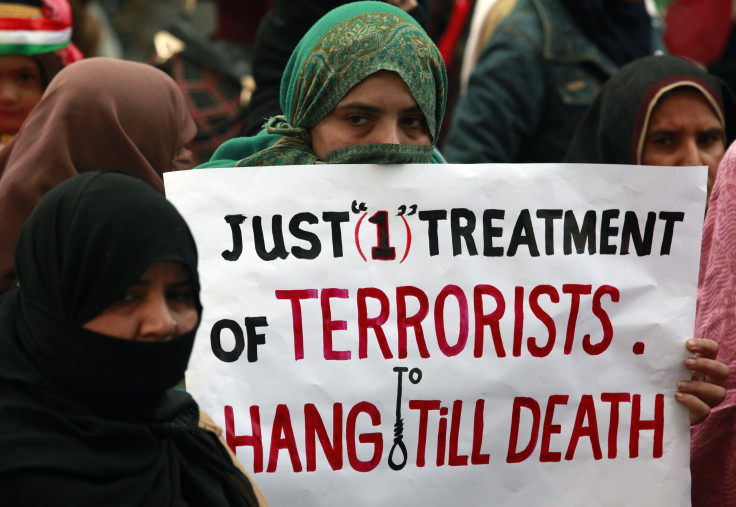Peshawar School Attack: Pakistan Plans To Execute 500 Militants After Lifting Ban On Death Penalty

Pakistan plans to execute about 500 Islamist militants in coming weeks after the government lifted a six-year moratorium on the death penalty in terrorism-related cases, officials said Monday, according to Agence France-Presse (AFP). The move comes after a deadly Taliban attack at an army school in Peshawar last week killed over 140 people, mostly children.
Six militants have been executed since Friday amid growing public anger over the attack in the restive Khyber Pakhtunkhwa province in the country’s northwest. Five of those hanged in the past few days were involved in a failed attempt to assassinate former military leader Pervez Musharraf with suicide car bombs in 2003, while one was involved in a 2009 attack on the army's headquarters.
"Interior ministry has finalized the cases of 500 convicts who have exhausted all the appeals, their mercy petitions have been turned down by the president and their executions will take place in coming weeks," a senior government official told AFP. The information was later confirmed by a second official, AFP reported.
Prime Minister Nawaz Sharif, who has been facing pressure from the public to do more to tackle the Pakistani Taliban insurgency, has ordered the attorney general's office to "actively pursue" all capital cases that are in the courts, a government spokesman said, according to AFP. The "prime minister has also issued directions for appropriate measures for early disposal of pending cases related to terrorism," the spokesman reportedly said, but did not confirm the plan to execute nearly 500 people.
Pakistan saw its deadliest terrorist attack on Tuesday after seven Taliban militants stormed the Peshawar school. Children, who survived the attack, recollected the day saying that they pretended to be dead, lying among the corpses of their classmates, in order to escape the gunmen, BBC reported.
At least four suspects, including a woman, were arrested in Bahawalpur district, about 480 miles south of Peshawar in connection with the attack. Authorities said that the suspects were tracked down using a Subscriber Identity Module (SIM) card, which was registered under the name of the woman, and was allegedly used by the attackers.
However, Sharif's move to reinstate the death penalty was criticized by several human rights groups, including the United Nations.
"To its great credit, Pakistan has maintained a de facto moratorium on the death penalty since 2008,” U.N. human rights spokesman Rupert Colville reportedly said. "We urge the government not to succumb to widespread calls for revenge, not least because those at most risk of execution in the coming days are people convicted of different crimes.
"In fact, by feeding a cycle of revenge, it may even be counter-productive," Colville said, according to Reuters.
© Copyright IBTimes 2025. All rights reserved.





















